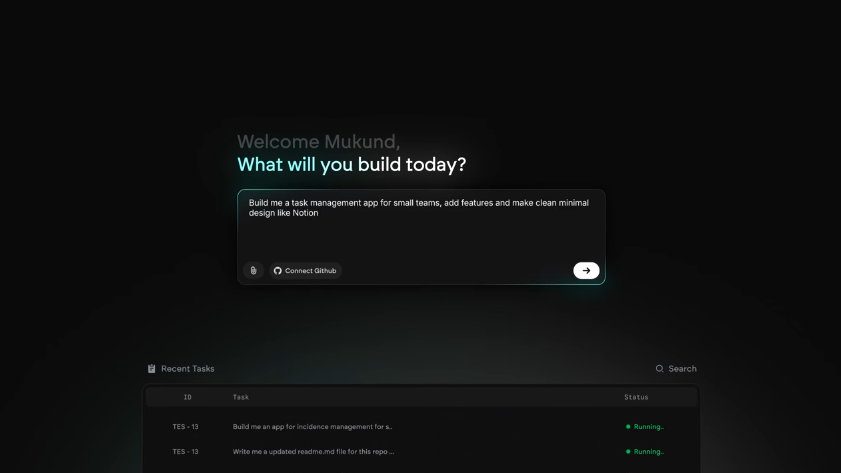AI ที่ขอบอุปกรณ์และไปไกลกว่านั้น: การเรียกคืน, การอัปเดต, และภูมิทัศน์เทคโนโลยีผู้บริโภคใหม่ในปี 2025
Author: Tech Desk

ตลอดภูมิทัศน์เทคโนโลยีในปี 2025 ปัญญาประดิษฐ์ไม่ใช่เรื่องใหม่อีกต่อไป แต่เป็นหลักการดำเนินงานที่แพร่หลาย ซึ่งแตะถึงการออกแบบฮาร์ดแวร์ ประสบการณ์ซอฟต์แวร์ และแม้กระทั่งระบบความปลอดภัยที่อยู่เบื้องหลังการเคลื่อนไหวในชีวิตประจำวัน ตั้งแต่อุปกรณ์ขอบที่ประมวลผลข้อมูลตั้งแหล่งที่มาถึงบริการคลาวด์ที่ประสานงานงานที่ซับซ้อน AI กำลังกำหนดสิ่งที่ผู้บริโภคคาดหวัง: การตอบสนองที่รวดเร็วขึ้น ผู้ช่วยที่ฉลาดขึ้น และอินเทอร์เฟซที่ใช้งานได้ง่ายขึ้น สัญญาณที่เห็นได้ชัดที่สุดของการเปลี่ยนแปลงนี้ไม่ใช่แค่แกดเจ็ตที่สะดุดตา แต่ยังเป็นจังหวะสม่ำเสมอของการดำเนินการด้านกฎระเบียบ การอัปเดตแพลตฟอร์ม และเงินทุนของสตาร์ทอัปที่ร่วมกันกำหนดกรอบขอบเขตว่าเทคโนโลยีจะทำอะไรได้บ้างและควรทำอะไรบ้าง บทความที่สำรวจสำหรับรายงานนี้วาดภาพภาพรวมที่กว้าง: ผู้ผลิตรถยนต์เรียกคืนหลังจากข้อบกพร่องของระบบไฮบริด บริษัทเทคโนโลยีขนาดใหญ่กำลังกำหนดการปรับปรุงแอปมือถือด้วยฟีเจอร์การเขียน ค้นหา และเสียงที่ขับเคลื่อนด้วย AI ฮาร์ดแวร์บริษัทต่างๆ กำลังทำการตลาด AI accelerators ที่ใช้พลังงานอย่างมีประสิทธิภาพสำหรับการอนุมานบนอุปกรณ์ และเงินทุนร่วมลงทุนไหลเข้าหาแพลตฟอร์มที่สัญญาเปลี่ยนข้อมูลดิบให้เป็นข้อมูลเชิงปฏิบัติ เมื่อรวมกัน การพัฒนาเหล่านี้ชี้ให้เห็นถึงระบบนิเวศที่เรียนรู้ที่จะสมดุลระหว่างประสิทธิภาพ ความปลอดภัย ความเป็นส่วนตัว และความเชื่อมั่นของผู้ใช้ในวงกว้าง
ด้านความปลอดภัย การประกาศเรียกคืนที่ออกในตลาดหลายแห่งทั่วอ่าวอาหรับและตลาดโลกรวมถึงวิธีที่ระบบขับเคลื่อนด้วย AI และระบบขับเคลื่อนยานพาหนะมีการประสานงานกับการตรวจสอบด้านกฎระเบียบและการคุ้มครองผู้บริโภค ในกรณีหนึ่ง กระทรวงพาณิชย์และอุตสาหกรรม ซึ่งทำงานร่วมกับเครือข่ายผู้จำหน่ายในพื้นที่ รายใหญ่ ประกาศเรียกคืนรถยนต์ไฮบริด Lexus และ Toyota บางรุ่น รวมถึง Lexus 700 Hybrid และ Toyota Land Cruiser 300 Hybrid การเรียกคืนระบุข้อบกพร่องที่อาจส่งผลต่อความน่าเชื่อถือหรือตลอดระยะยาว ซึ่งเป็นเหตุให้เกิดการตอบสนองร่วมกันระหว่างแบรนด์ที่ใช้แพลตฟอร์มร่วมกันหรือห่วงโซ่อุปทาน แม้ว่าการดำเนินการด้านกฎระเบียบเช่นนี้จะสร้างความวุ่นวายให้กับผู้ผลิตและเจ้าของ แต่ก็ย้ำถึงความจริงสำคัญเกี่ยวกับรถยนต์ที่ขับเคลื่อนด้วย AI ในปัจจุบัน: แม้ว่าอัตโนมัติและไฟฟ้าจะสัญญาว่าจะขับขี่ที่ปลอดภัยและมีประสิทธิภาพมากขึ้น แต่ปัญหาการบูรณาการซอฟต์แวร์และฮาร์ดแวร์ที่ซ่อนอยู่ก็อาจ surface ภายใต้สภาพจริง การกระบวนการระบุ เรียกคืน และแก้ไขปัญหาเหล่านี้เป็นเครื่องเตือนใจว่า AI ในการเคลื่อนที่ต้องได้รับการสนับสนุนโดยการทดสอบอย่างเข้มงวด การสื่อสารที่โปร่งใสกับลูกค้า และการควบคุมคุณภาพที่เข้มงวดทั่วห่วงโซ่อุปทาน

รถยนต์ Lexus, Toyota, Mazda และ Peugeot ที่ถูกเรียกคืนเนื่องจากข้อบกพร่องในระบบไฮบริดที่เป็นไปได้
Beyond safety recalls, the year has seen a wave of productivity-related AI enhancements in mainstream software. Notably, major apps are revamping Android and desktop experiences to help users write, search, and navigate more efficiently. A leading suite of updates envisions new AI-assisted features within Google Docs for Android, including a streamlined user interface designed for one‑handed use, Gemini-powered summaries, and text-to-speech capabilities that can read documents aloud. The aim is to reduce friction for mobile workers who rely on documents to coordinate projects, draft proposals, and manage communications on the go. As with any AI integration, the value rests on accuracy, control, and privacy, with enterprise subscribers often demanding stronger governance around data usage and model personalization. These changes also reflect a broader push to embed AI into everyday workstreams, turning smartphones into more capable productivity hubs that can rival traditional desktop software when connected to cloud services.
การพัฒนาฮาร์ดแวร์กำลังดำเนินไปบนแนวคิดเน้นขอบเป็นลำดับแรก นักออกแบบเซมิคอนดักเตอร์เน้นการใช้พลังงานต่ำ ความหน่วงต่ำ และปัญญาบนอุปกรณ์ Lattice Semiconductor ผู้มีประวัติในฮาร์ดแวร์โปรแกรมได้ที่ใช้พลังงานต่ำ ได้ประกาศการเข้าร่วม FPGA Horizons Conference ที่ลอนดอน เพื่ออธิบายว่า edge AI กำลังเคลื่อนไปสู่การใช้งานจริงมากกว่าการสาธิตเชิงทดลอง จุดมุ่งหมายคือแสดงว่า FPGA และโซลูชัน SoC ขนาดเล็กที่มีประสิทธิภาพสามารถเรียกใช้งานการอนุมาน AI บนตัวเครื่องได้เอง เช่น การตรวจจับความผิดปกติแบบเรียลไทม์ในเซ็นเซอร์อุตสาหกรรม การประมวลผลเสียงบนอุปกรณ์ และลูปควบคุมอัตโนมัติในอุปกรณ์อิเล็กทรอนิกส์สำหรับผู้บริโภค ความสำคัญของ edge AI สอดคล้องกับแนวโน้มอุตสาหกรรมที่กว้างใหญ่ขึ้น: เก็บการประมวลผลข้อมูลใกล้แหล่งข้อมูลเพื่อลดความต้องการแบนด์วิดธ์ ปกป้องความเป็นส่วนตัว และตอบสนองต่อเป้าหมายความหน่วงที่เข้มงวดในแอปพลิเคชันตั้งแต่การควบคุมเชิงอุตสาหกรรมถึงอุปกรณ์สวมใส่ ข่าวประกาศชี้ถึงอนาคตที่ AI จะไม่พึ่งพาศูนย์ข้อมูลระยะไกลสำหรับการตัดสินใจทุกครั้ง ทำให้การตอบสนองเร็วขึ้นและมีบริบทมากขึ้นแม้ในสภาพแวดล้อมที่มีแบนด์วิธจำกัด

Lattice Semiconductor จะแสดงนวัตกรรม edge AI ในงาน FPGA Horizons Conference.
In the media and entertainment space, AI‑assisted workflows are quietly expanding professional toolkits. A notable development is the reintegration of desktop DJ software support for Spotify Premium users, restoring interoperability with popular apps such as djay, Rekordbox, and Serato DJ after a multi-year hiatus. For professional DJs, producers, and venues, this move reduces workflow friction, enabling library synchronization, track analysis, and performance tweaks to occur within familiar software ecosystems. Industry observers say the change could strengthen Spotify’s appeal to music makers who rely on precise timing, curated catalogs, and cross‑platform control. It also signals how streaming platforms may recalibrate their strategic priorities to balance licensing realities, platform incentives, and the needs of creators who operate at the intersection of music and technology.
การสมาร์ทวอทช์และอุปกรณ์สวมใส่กำลังเป็นสนามทดสอบสำหรับคุณลักษณะ AI ที่มุ่งด้านสุขภาพและการใช้งาน One UI 8 Watch Beta ของ Samsung ขยายความสามารถที่ AI ของ Wear OS 6 มีไปยัง Galaxy Watch 6 รุ่น รวมถึงรุ่น Classic รุ่นเก่า การอัปเดตนี้สัญญาจะทำการวิเคราะห์การนอนหลับที่ลึกขึ้น การติดตามสุขภาพที่ตอบสนองได้มากขึ้น และการปรับแต่งอินเทอร์เฟซเพื่อให้การโต้ตอบดูเป็นธรรมชาติและไม่รบกวนกิจวัตรประจำวัน การอัปเดตเช่นนี้สะท้อนกลยุทธ์ของอุตสาหกรรมในการเปลี่ยนอุปกรณ์สวมใส่จากของเล่นเป็นเครื่องมือสุขภาพและประสิทธิภาพการทำงานที่จำเป็น ด้วยการรวมเซ็นเซอร์ล้ำสมัยกับการประมวลผลบนอุปกรณ์และข้อมูลเชิง AI ผู้ผลิตมุ่งมั่นที่จะให้ข้อมูลที่ใช้งานได้จริง — ไม่ว่าจะเป็นการตรวจจับช่วงการนอนหลับที่ดีกว่า การติดตามอัตราการเต้นของหัวใจ หรือการเตือนอัจฉริยะ — โดยไม่ลดอายุการใช้งานแบตเตอรี่มากเกินไปหรือเสี่ยงต่อความเป็นส่วนตัวของผู้ใช้ที่มาพร้อมกับการประมวลผลบนคลาวด์

ซัมซุงขยายคุณสมบัติ AI ด้วย One UI 8 Watch Beta สำหรับ Galaxy Watch 6
Startup funding in AI-powered software continues to accelerate, underscoring investor confidence in platforms that lower the barriers to building intelligent apps. Emergent Labs, a San Francisco‑based startup focused on a high‑level AI platform for coding, recently closed a $23 million Series A led by Lightspeed Venture Partners, with participation from Y Combinator and notable technologists including Jeff Dean. The round positions Emergent to broaden access to tools that automate aspects of software development, enabling developers to compose, test, and deploy AI-powered applications with less hand‑coding. This funding trend dovetails with a growing ecosystem of AI agents, copilots, and generative tooling that is gradually lowering the barrier to prototyping and production. For developers and enterprises, such platforms could shorten cycle times, reduce cost, and unlock new forms of collaboration between human engineers and AI systems—though questions about reliability, governance, and security remain central to ongoing discussions about AI governance.
Amid the broad excitement, some voices urge caution about how AI encroaches on the workplace and consumer life. An opinion piece in a technology outlet drew attention to concerns about AI‑driven labor and the quality of AI integrations, arguing that merely adding AI features can lead to a pendulum swing toward ‘AI workslop’ if not anchored by discipline and clear purpose. The piece argues for better curation of AI capabilities, improved user education, and stronger accountability for outcomes. This tension—between a dazzling array of AI features and the risk of diminishing returns or eroding professional standards—reflects a mature market where buyers increasingly demand transparency around data usage, model limits, and the real value of AI‑assisted workflows. The industry’s response to such criticisms will shape how aggressively firms pursue AI enhancements and how they balance automation with human oversight across design, development, and daily operations.
Meanwhile, the mobile‑hardware battleground shows rapid iteration around user experience and AI-enabled features such as mobile assistants, on-device inference, and context-aware apps. The smartphone arena continues to echo the rapid pace of news about the OnePlus and Google ecosystem, with leaks and previews highlighting ambitious camera and AI capabilities—while competitors test the limits of integration, performance, and battery life. Analysts note that the race is less about raw specifications and more about how intelligently devices can interpret user intent, anticipate needs, and present information in digestible, action‑oriented formats. This shift is closely watched by investors and consumers alike as it signals whether AI-centric software updates can translate into tangible, everyday improvements rather than mere novelty.

Emergent Labs funding round highlights AI development platforms.
Taken together, these threads illustrate a technology landscape that is increasingly AI-first but not AI-dominant. The most promising developments blend on‑device intelligence with privacy-conscious cloud capabilities, deliver practical value to workers and consumers, and are backed by robust safety and governance mechanisms. Regulators’ willingness to mandate recalls in the automotive sector, platforms’ efforts to extend AI features to wearables and productivity apps, and the surge of funding for AI tooling all point to a 2025 that favors usable, trustworthy AI at the edge and in the cloud. If the industry can sustain a balance between performance, safety, and user control, the next wave of AI innovations—spanning smarter hardware, more capable software, and smarter business models—could become a reliable driver of productivity, creativity, and economic growth in the years ahead.

Alibaba shares rise to a four-year high on AI spending news.